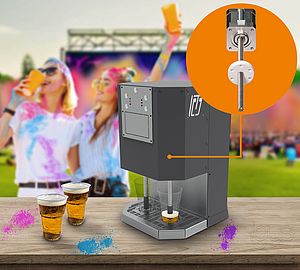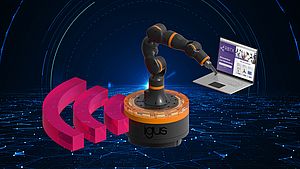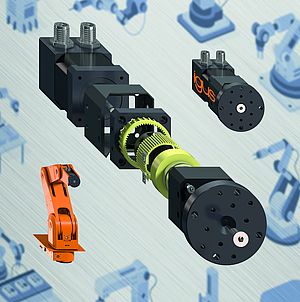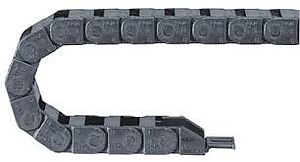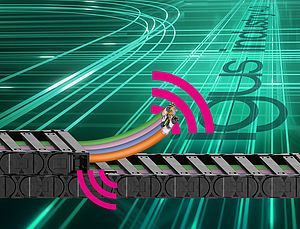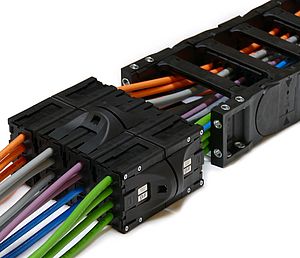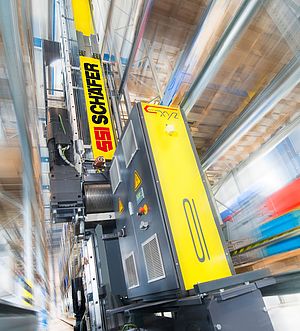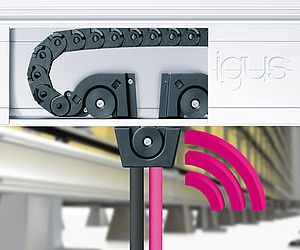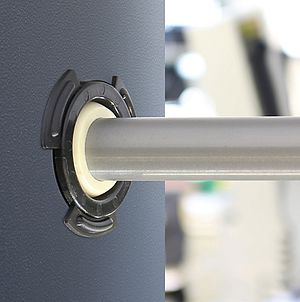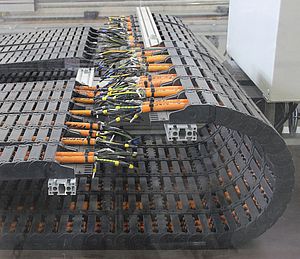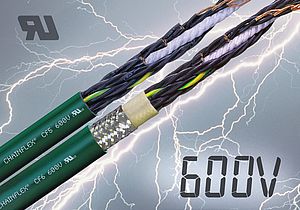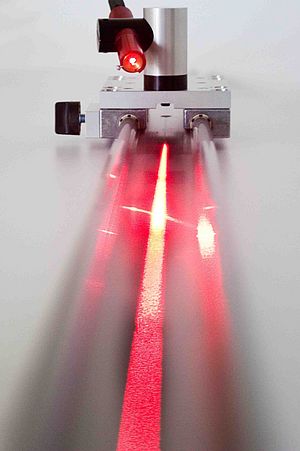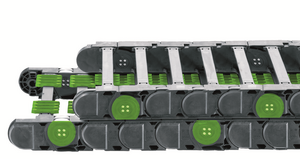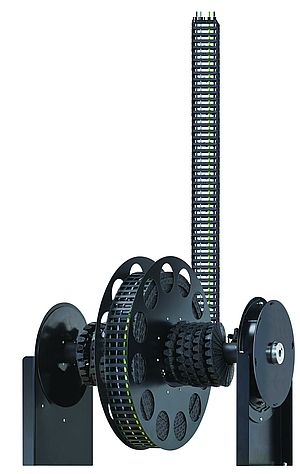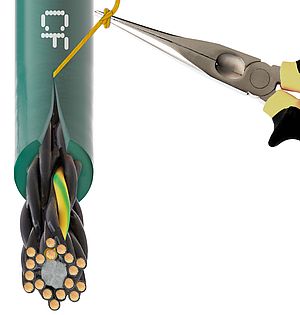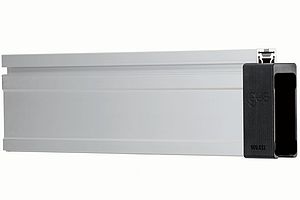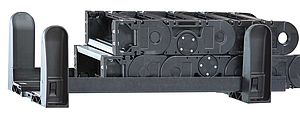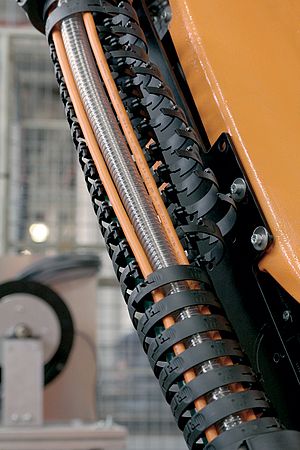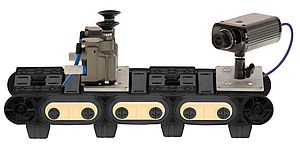A technician looks at his smartphone: a conveyor belt of a beer bottle discharge system contains a fixed flange bearing that is approaching its wear limit. Previously, the problem might not have been detected and cause an expensive system failure. Today, however, the technician can simply replace the bearing during a break in production knowing definitely that the hundreds of other bearings also communicate with him.
Flange bearings transmit their status wirelessly
And this is how the new Industry 4.0 bearings work: igus integrates an abrasion sensor into the polymer spherical ball: a thin circuit board close to the running surface. There is also a battery for the power supply without cables. This means that the bearing for spherical levelling can continue to move independently. Wear interrupts the conductor paths of the circuit board. If the electronics lose the signal of a conductor path, they know that the wear has reached a certain level. The sensor transmits a digital signal via a long-range network (LoRa), a wireless standard for the Internet of Things that is known for its energy efficiency. The receiver is the i.Cee switch cabinet module, which analyses the data. The associated software now knows that the conductor path is worn out, and infers the percentage of abrasion. Over time, the sensor itself wears away layer by layer - parallel to the bearing's running surface. It continues to send out signals that allow conclusions to be drawn regarding the bearing's condition. Users can see the remaining service life and when maintenance is due on a web-based dashboard, which they can access from anywhere in the world with a PC, tablet or smartphone.
Luxembourg's national railway company is the first pilot customer
The new fixed flange bearings are currently in the prototype phase. However, they have already convinced one pilot customer: the Société National des Chemins de Fer Luxembourgeois (CFL). Luxembourg's national railway company operates a 200-metre washing system that cleans local and long-distance trains every day. In the past, gearbox malfunctions on the washing trolley repeatedly led to costly system failures. The operator therefore abandoned lubricated standard ball bearings and instead used the networked spherical balls from igus in the UC bearing housings. The advantage is that the spherical balls made of high-performance plastics are corrosion-free, resist chemicals and enable low-friction and maintenance-free dry operation thanks to incorporated solid lubricants.






